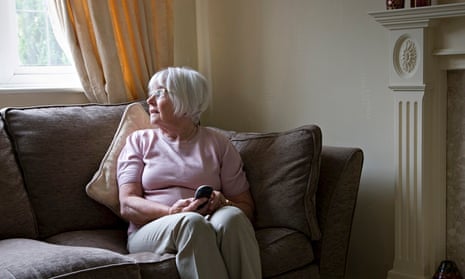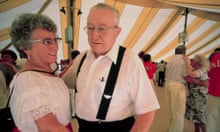You might have seen the recent poll which showed that 40% of over-85s prefer to be described as “real seniors” rather than as “elderly” or “pensioners”. It underlines the pace at which demographics are changing. The number of people in this age group is expected to increase by 50% by 2030.
There are now whole generations within the population traditionally referred to as older people, so their needs and aspirations are as wide-ranging as those of any other social group. A socially isolated 65-year-old with multiple health problems will require more support than an active nonagenarian with strong social and family networks.
This is one of the starting points for a discussion paper published today by the College of Social Work – where I am chair of the adults faculty – in a bid to define what excellent social work with older people looks like.
Many older individuals can face difficult life decisions in an increasingly complex, and largely commercial, care services market. This is where social work as a distinct discipline really comes into its own: the skill and ability to work with people to assess their needs within the context of the same factors affecting us all, whether lifestyle and history, family or community. It also involves tackling head-on the discrimination or sense of being overlooked that older people often feel.
As social workers we are powerful advocates with the knowledge, skills and values to really change lives. We should use this demographic challenge to build on the experience and assets of older people rather than adopt the unhelpful rhetoric that so often frames the debate. The current crisis within the NHS is largely viewed through a healthcare lens, describing older people as bed blockers; but can also be seen as an opportunity to consider the potential to join up services.
Social workers can help individuals, families and communities build on their strengths, and unlock their potential, for example, by supporting older people to begin volunteering, thus ensuring that other care users are not isolated.
When decisions about complex or highrisk situations need to be made, or where families are in crisis, older people should have access to a social worker who can support them. This should not depend on whether you are eligible for publicly funded support, nor on the amount of care required. It also means other professionals and non-registered staff in social care have access to advice and input from social workers too.
Excellent social work with older people requires it to be valued and visible. Practitioners would actively seek to work in this specialism. Older people and those who care about them would understand that social work is a service they could benefit from. Social workers are skilled in assessing and planning care needs from a holistic perspective; in providing professional leadership for teams working around older people and their families; and in offering calm support at times of crisis, particularly when relationships may be strained.
We hope that as many people as possible share their views with us through our survey. The drivers for change are clear and, promisingly, the methods may exist too. The Care Act, which comes into force in April, could provide an opportunity for action. The duties placed on local authorities, such as promoting wellbeing for adults and carers, preventing need, providing information and strengthening safeguarding will all require the skills that social workers possess, particularly in complex situations.
Longer, older age is something to be celebrated, not endured. Excellent social work with older people has the power to make a significant contribution.
Why not join our social care community? Becoming a member of the Guardian Social Care Network means you get sent weekly email updates on policy and best practice in the sector, as well as exclusive offers. You can sign up – for free – online here










